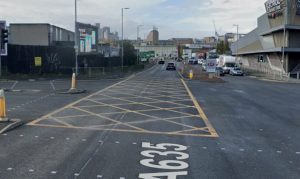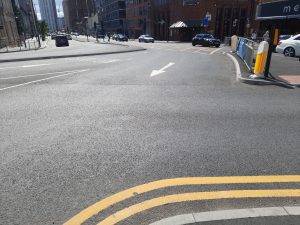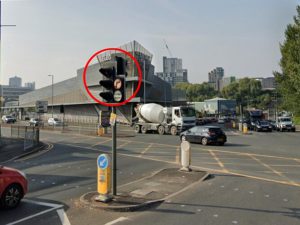Manchester City Council appointed us to provide end to end project management support to assist the Council to develop capabilities to enforce moving traffic offences. This meant obtaining the necessary powers, creating the infrastructure, and capability to enforce moving traffic offences under Part 6 of the Traffic Management Act 2004. This included preparing a full business case and programme, preparing a feasibility study, site prioritisation, site surveys, TRO reviews, consultation and implementation assistance as well as advisory technical support throughout the process.
Creating the business case
The business case is an essential stage in the process. The preparation allowed the Council to produce a financial model which mapped out indicative costs and income. We used this to underpin the decision to invest in the necessary camera infrastructure to support enforcing moving traffic restrictions.
We worked with Manchester City Council to ensure that the business case used local data to provide robust forecasts. This included analysing local average PCN payment rates and recovery rates. This ensured that the effect local parking policies the Council use to inform PCN decisions were reflected within the business case. We used our experience working with a multitude of London Boroughs already enforcing moving restrictions to provide real time capture and PCN rates that are reflective of a city such as Manchester.
The feasibility stage
Data collection formed a key part of the feasibility stage. We identified a maximum of 20 locations for reviewing and further shortlisting. The shortlisting criterion ensured the sites prioritised for enforcement focused on non-monetary benefits. This weighted scores at each site based on a series of questions focusing on traffic flows, KSIs, walking, cycling, public transport routes and existing levels of compliance. Then we shortlisted seven initial sites following this review.
We carried out site surveys and reviewed the site conditions, as well as associated TROs, for compliance. We produced existing and compliance drawings for each site and completed a full audit spreadsheet including an itinerary log of all street assets.
Engaging the public
We also supported Manchester City Council’s communications team and attended several public drop-in sessions at the Central Library in St Peters Square. We created online surveys to allow residents to provide feedback on each of the sites. Our analysis team collated the online survey responses and prepared an objection report listing objections and responses to those objections.
We also produced policy documents including an enforcement code of practise and PCN issuing guidelines that have now been adopted by the council.
Key targets and successful outcomes
Creating robust policy was important to both parties. Manchester City Council has adopted the enforcement code of practise and PCN issuing guidelines that we created.
We considered the criteria laid out by The Department for Transport (DfT) and ensured it was applied throughout the process. The criteria provided guidance and supported a review of the designation order application, maximising the opportunity of ensuring a successful outcome. We submitted the designation application within the required timescales in tranche 2 and approval is expected on 22 July 2023.
Following the submission of the designation application, we have continued to support the Council with enforcement set up and production of technical files for each enforcement site.
Challenges, innovations and best practice
- The DfT amended the submission date for applications on a number of occasions. The first amendment brought the deadline date closer. We were able to scrutinise and reprioritise tasks within the programme in order to meet the refined deadlines.
- We built a site prioritisation matrix that allowed each site to be assessed and scored against the non monetary benefits of enforcement. This has allowed the council to develop a robust evidence base of their site selections and will allow them to roll out enforcement across the city in future years.This model has been successfully rolled out in other Greater Manchester districts.
Project Centre provided expert knowledge and advice in the processes required to apply the powers including experience from working with other authorities on similar projects. They were able to support in multiple aspects of the project including surveys, engagement, TROs, design, enforcement and back office preparations. Tina and her team were very flexible and responsive to requests.
Overall Project Centre demonstrated in depth knowledge and experience of supporting local authorities with preparing to enforce moving traffic offences and tailored their service to meet the needs of Manchester City Council, providing sound advice and support for the entire project.
Manchester City Council











